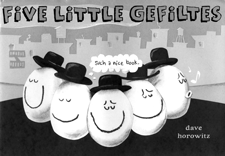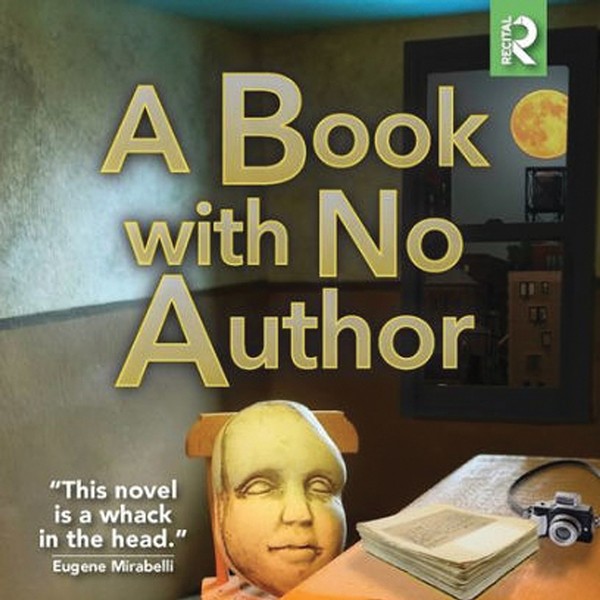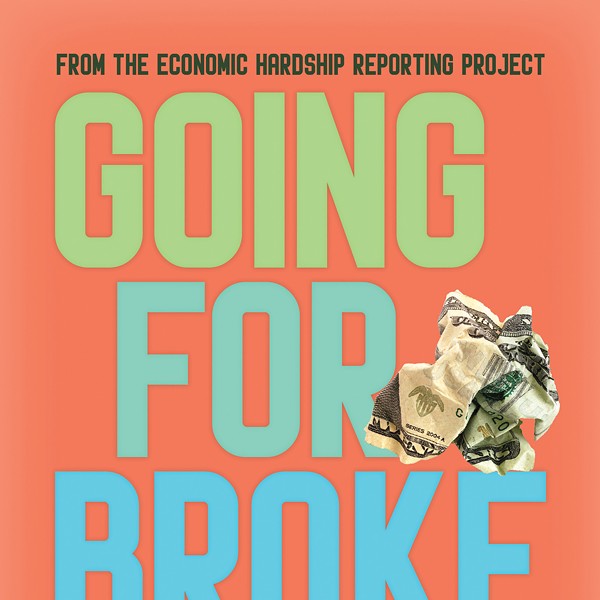Jewish-themed children’s books often straddle a tricky divide. But there are simple clues to wider appeal. Is the book’s focus religious or cultural? Does it open a window onto another way of life?
Maybe, like the picture book Rebekkah’s Journey, it shows history from a unique angle. Created by a Rhinebeck writer and a Woodstock-based illustrator, the story is based on the little-known true tale of 1,000 World War II refugees invited in 1944 by FDR to stay at an empty Army Base in upstate New York. The viewpoint character is seven-year-old Rebekkah, who voices with affecting spareness her flight from the Nazis: “For miles Mama carried me on her back. But then she grew tired. ‘Rebekkah,’ she whispered into my hair as she put me down. ‘Please, Bekah, be strong.’”
A completely different side of the Jewish-American experience is presented in Five Little Gefiltes, the latest picture book by a prolific Rosendale writer/illustrator. (For the uninitiated, “gefiltes” are chopped fish in aspic.) In a creatively slanted take on a classic toddler rhyme, Horowitz combines folksy Yiddishisms, goofy rhymes, cut paper, and paint to portray a charming, pushcart-strewn, two-cent-pickle version of New York’s Lower East Side. Five black-hatted gefiltes “set out one day” and then, to the chagrin of Mama Gefilte, they fail, one by one, to return to their jar. But they don’t go far—errant gefiltes can be spotted in each spread, boating in the harbor, dancing on rooftops, spoiling someone’s soup.
The backgrounds are saturated with delightful details, like a store called Schmata King (we got a lotta schmatas!) and a sign at a deli exhorting patrons to “have a nosh.” The gefiltes add to the silliness as well. “I’m totally schvitzing,” one complains. “I know—it’s so humid!” says another. But the humor isn’t just for insiders; there’s a glossary of Yiddish words and their pronunciations at the end. And because it’s the kind of book that begs repeat reads, Five Little Gefiltes will be a vocabulary-building experience as well as a bedtime favorite (prepare to embrace the phrase Oy vey).
The family’s ultimate reunion will satisfy the book’s youngest audience, but kids of every age and ethnicity will find delight here. Lucky are the parents who get to mouth kvetched, schnook, and mischpocheh again and again (say it throaty, like you have a hairball).
The glossary’s explanation of chutzpah reads, “Dave got someone to publish this ridiculous book about a bunch of gefilte fish? Now that’s what I call chutzpah!” It seems this meshuga book was as much fun to write as it is to read.
The book is being promoted “just in time for Passover,” the holiday when gefiltes quiver gelatinously at seders around the world. But like Rebekkah’s Journey, Five Little Gefiltes deserves to hop the fence of the ethnic book shtetl, and find a place as an appreciated guest at other tables too.


















